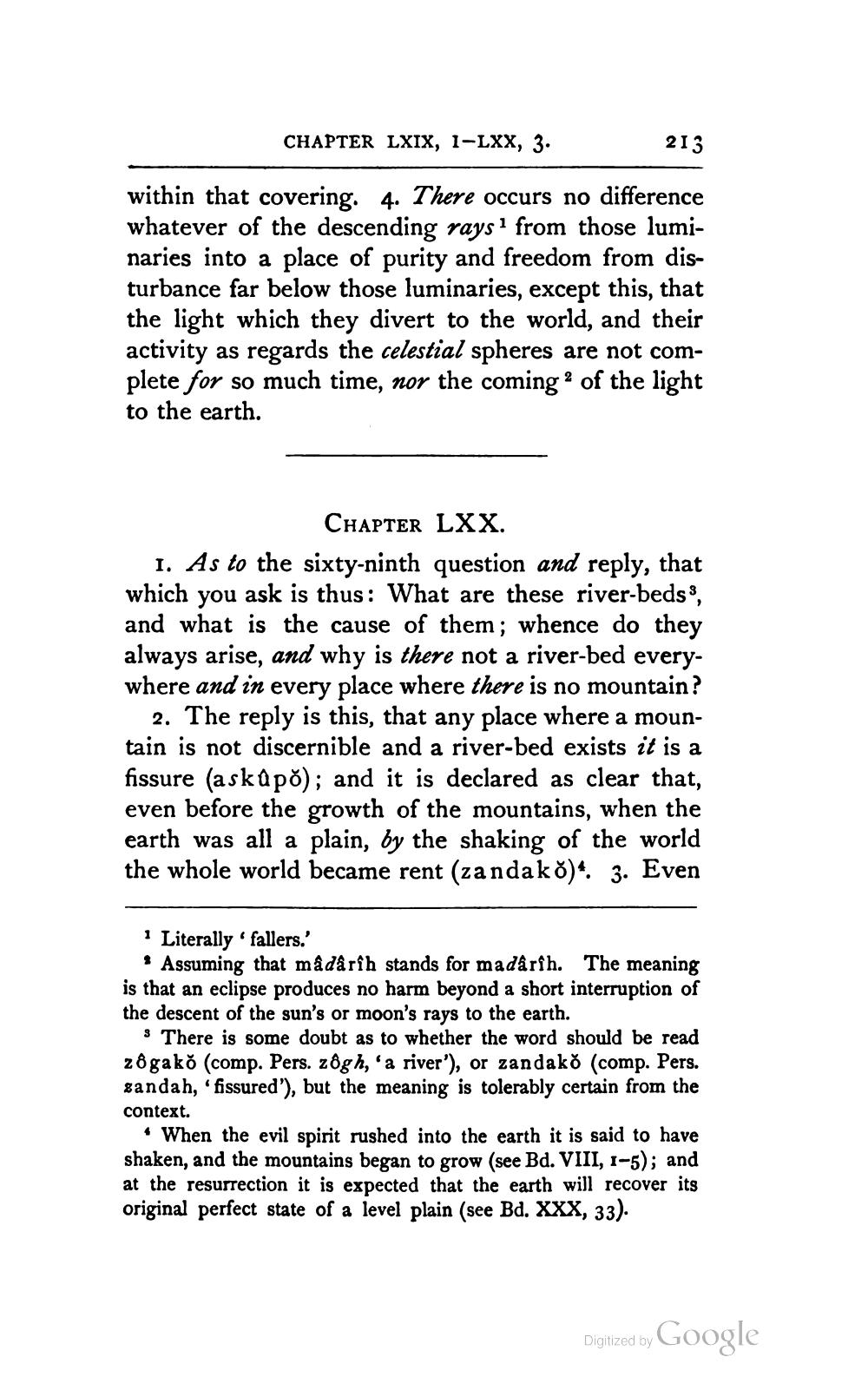________________
CHAPTER LXIX, 1-LXX, 3.
213
within that covering. 4. There occurs no difference whatever of the descending rays 1 from those luminaries into a place of purity and freedom from disturbance far below those luminaries, except this, that the light which they divert to the world, and their activity as regards the celestial spheres are not complete for so much time, nor the coming 2 of the light to the earth.
CHAPTER LXX. 1. As to the sixty-ninth question and reply, that which you ask is thus: What are these river-beds, and what is the cause of them; whence do they always arise, and why is there not a river-bed everywhere and in every place where there is no mountain?
2. The reply is this, that any place where a mountain is not discernible and a river-bed exists it is a fissure (ask apo); and it is declared as clear that, even before the growth of the mountains, when the earth was all a plain, by the shaking of the world the whole world became rent (zandako)* 3. Even
· Literally 'fallers.'
• Assuming that madárih stands for madàrih. The meaning is that an eclipse produces no harm beyond a short interruption of the descent of the sun's or moon's rays to the earth.
3 There is some doubt as to whether the word should be read zőgako (comp. Pers. zôgh, 'a river'), or zandako (comp. Pers. sandah, 'fissured'), but the meaning is tolerably certain from the context.
• When the evil spirit rushed into the earth it is said to have shaken, and the mountains began to grow (see Bd. VIII, 1-5); and at the resurrection it is expected that the earth will recover its original perfect state of a level plain (see Bd. XXX, 33).
Digitized by Google




